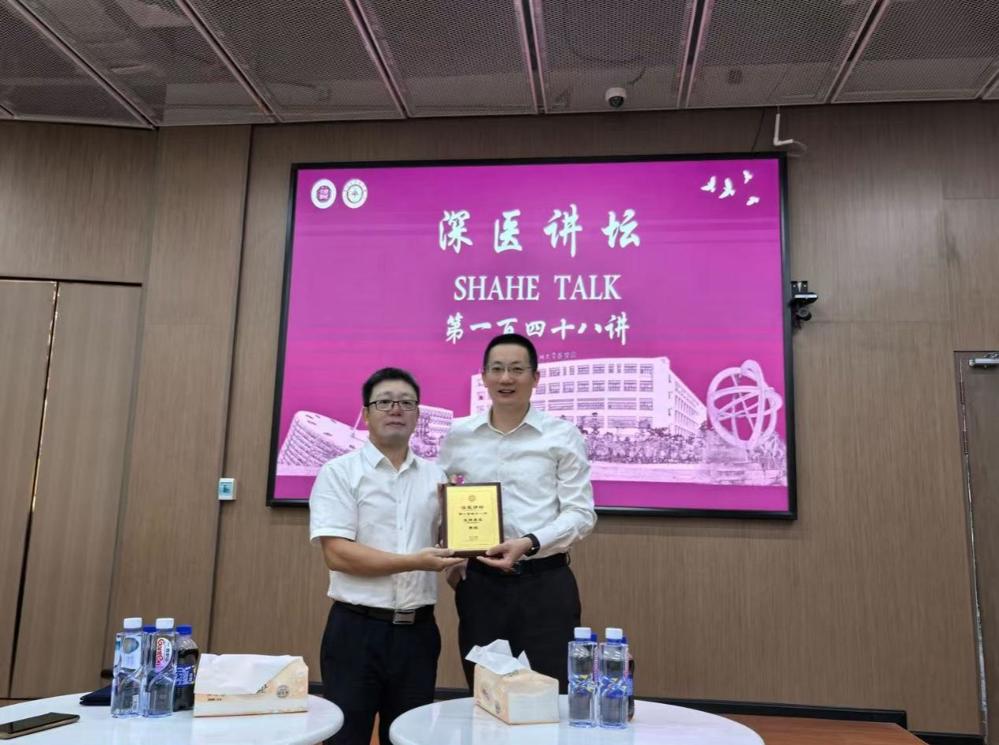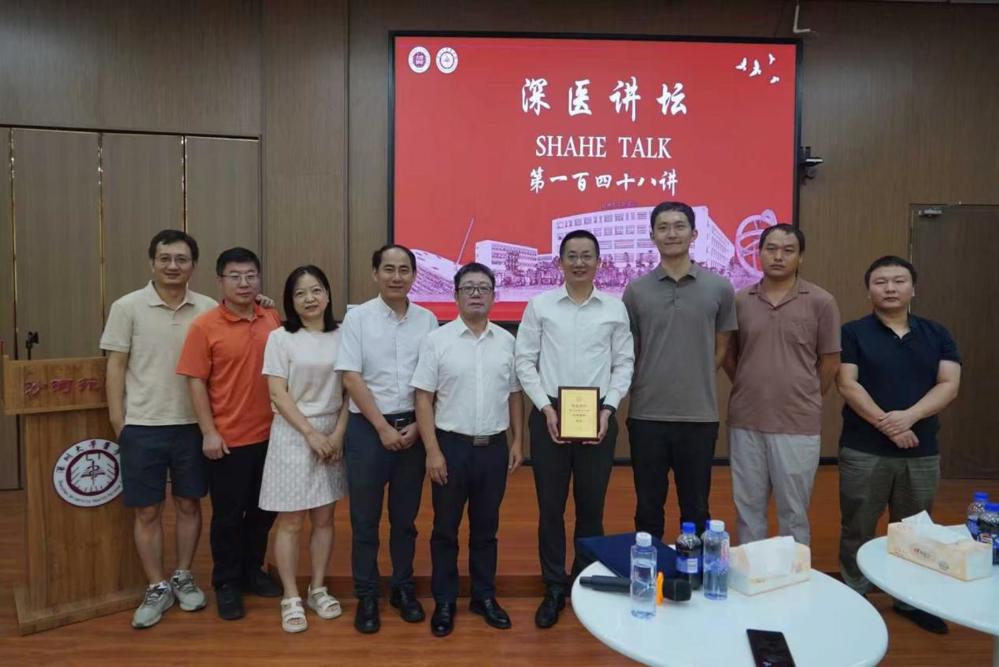Shenzhen University Medicine Forum:FOXP3+ Regulatory T Cell Functional Perturbation and Clinical Applications
On the morning of September 26, 2025, Professor Li Bin of Shanghai Jiao Tong University (Associate Director for Research of the Shanghai Institute of Immunology and Vice President of the Infection Branch of the Chinese Biophysical Society) delivered the 148th Shenzhen Medical Forum lecture, “Functional Perturbations of FOXP3+ Regulatory T Cells and Their Clinical Applications,” at A7 Shahe Yuan on Shenzhen University’s Lihu Campus. Professor Bin was hosted by Professor Chen Xinchun from the School of Basic Medicine, Health Science Center.
Regulatory T (Treg) cells maintain immune homeostasis and play critical roles in autoimmune disease, graft-versus-host disease, cancer, and infection. They suppress immune responses via inhibitory cytokines, granzyme- or perforin-mediated cytolysis, metabolic disruption, and dendritic-cell modulation. The master transcription factor FOXP3 is essential for Treg stability and plasticity, and its activity is finely tuned by post-translational modifications such as ubiquitination, acetylation, phosphorylation, methylation, glycosylation, and poly(ADP-ribosylation). Targeting these modifications—and developing tissue-specific “living” Treg therapies—remains a major challenge for personalized immunotherapy. Professor Li’s team has made key advances in this field:
1. Unraveling the dynamic regulatory network of the FOXP3 transcription factor complex.
2. Elucidating the functional plasticity of Treg cells and their role in diseases.
3. Proposing and exploring novel strategies for personalized Treg cell immunotherapy.
Using proteomics, they systematically identified FOXP3-interacting protein complexes and showed how ubiquitination and methylation regulate FOXP3 stability and function. They demonstrated Treg heterogeneity in contexts such as cancer, autoimmunity, and metabolic disease—for example, linking adipose-tissue Treg status to insulin sensitivity and showing how inflammatory microenvironments can drive Treg dysfunction or conversion to pro-inflammatory cells. Moving beyond single-target approaches, the group is developing combination therapies and leveraging artificial intelligence and multi-omics data to build personalized treatment-decision platforms.
This body of research spans the fundamental regulatory mechanisms of the FOXP3 transcription complex through to diverse Treg functions in vivo, driving the translation of research findings towards precision immunotherapies and highlighting an innovative loop from molecular mechanisms to therapeutic concepts.
Professor Li Bin is a National Science Fund for Distinguished Young Scholars in Immunology, a Yu Bin Scholar, and Distinguished Professor at Shanghai Jiao Tong University. He serves as Associate Director for Research at the Shanghai Institute of Immunology, Vice President of the Shanghai Overseas Returned Scholars Association (Biomedicine Branch), Vice President of the Infection and Immunity Branch of the Chinese Biophysical Society, and Executive Associate Editor of the European Journal of Immunology. He sits on the editorial boards of Cellular & Molecular Immunology and the Journal of Genetics and Genomics, and has published over 100 corresponding-author papers in journals including Nature Immunology, Immunity, and PNAS.










用户登录
还没有账号?
立即注册